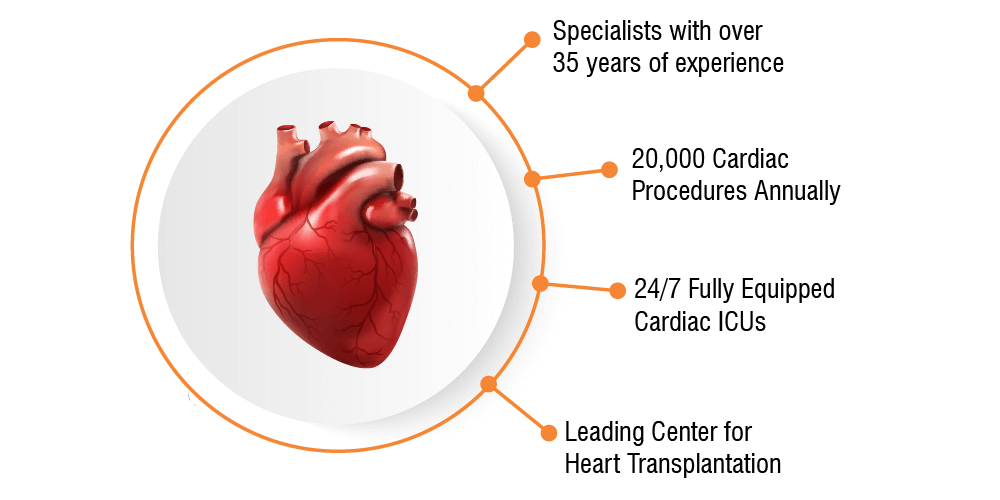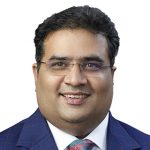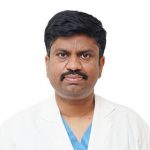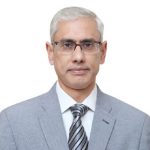Best Heart Hospital in Kolkata

We understand the challenges that come with traveling for specialized medical care, especially from different regions. To make your experience as seamless as possible, Yashoda Hospitals offers a range of supportive services. We assist with accommodation and travel arrangements, ensuring you have a comfortable stay, and provide comprehensive post-treatment care. Our team is committed to delivering compassionate and personalized care, so you receive the best possible treatment and support throughout your journey. Trust Yashoda Hospitals for your cardiac care needs and experience world-class treatment focused on your comfort and well-being.
Beds
Patients Served
Years Existence
Doctors
Procedures
ICUs
Leaders in Advanced Cardiac Care
Yashoda Hospitals is renowned for its cutting-edge cardiology services, combining advanced medical technology with a team of highly experienced specialists to deliver comprehensive heart care.
01.
Pioneers in Cardiac Care
Leading center for heart-lung transplantation, with state-of-the-art facilities for ventricular assist devices (VADs) and other advanced therapies.
State-of-the-Art Diagnostic Tools
Equipped with advanced imaging technologies such as Dual Source CT with Heart PBV, 3D ECHO, MRI, and PET scans.
Innovative Treatment Options
Expertise in minimally invasive procedures, including Transcatheter Aortic Valve Replacement (TAVR) and MitraClip for valve disorders.
Expert Team with Extensive Experience
Senior specialists with over 35 years of experience, handling over 20,000 procedures annually.
05.
Dedicated Patient Support
Comprehensive care coordination with 24/7 fully equipped cardiac ICUs and specialized clinics for pediatric cardiac care.
Comprehensive Heart Care Services
From initial diagnosis and preventive consultations to advanced treatments and post-operative care, we offer a complete range of cardiac services designed to meet your individual needs.
Expert Diagnosis and Management
Our team excels in diagnosing and managing a wide range of heart conditions, using advanced diagnostic tools to tailor treatment plans to each patient’s specific needs.
Preventive Cardiology Consultations
We focus on heart disease prevention through consultations that help identify risk factors, educate patients, and implement preventive strategies to maintain heart health.
Minimally Invasive Heart Procedures
We offer cutting-edge minimally invasive procedures, including advanced catheter-based interventions, designed to improve recovery times and outcomes.
04.
Specialized Treatments for Complex Cardiac Conditions
Our specialised treatments, such as Transcatheter Aortic Valve Replacement (TAVR) and MitraClip procedures, offer advanced solutions to complex cardiac issues.
Post-Operative Care and Follow-Up
Comprehensive post-operative care and follow-up consultations are provided to ensure optimal recovery and long-term management of heart health.
Advanced Cardiac Surgeries
At Yashoda Hospitals, we specialize in a comprehensive range of advanced cardiac surgeries designed to address various heart conditions with precision and care. Here’s an overview of the key procedures we offer:

Coronary Artery Bypass Grafting (CABG)
Transcatheter Mitral Valve Replacement (TMVR)
Percutaneous Coronary Intervention (PCI)
Transcatheter Aortic Valve Replacement (TAVR)
Pacemaker Implantation
Atrial Septal Defect/Ventricular Septal Defect (ASD/VSD) Repair
All-Inclusive Patient Support Services
At Yashoda Hospitals, we understand that traveling for medical care can be challenging. That’s why we offer a range of support services to ensure your experience is as smooth and comfortable as possible.

Accommodation Assistance
We help you find and book comfortable accommodations close to the hospital. Our partnered hotels are at convenient locations to make your stay hassle-free.

Transportation Services
From airport pickup to local travel arrangements, we provide reliable transportation options. Our services include airport drop-offs and transfers between your accommodation and the hospital.

Language and Translation Services
Communication is key to your care. We offer translation and interpreter services to assist you in understanding medical information and ensuring clear communication with our staff.

Patient Navigation
Our dedicated patient coordinators are here to assist with appointment scheduling, managing medical records, and handling follow-up care. They ensure a smooth process from your initial consultation through your entire treatment journey.

Medical Consultation and Follow-Up
We provide support for both initial and follow-up consultations, including virtual options when needed. This ensures continuous care and seamless communication with your healthcare providers.

Specialist Consultations
For comprehensive care, we facilitate consultations with top cardiology specialists. Whether you need a second opinion or additional expertise, we coordinate these specialized services for you.

Insurance and Financial Assistance
Navigating insurance and medical expenses can be complex. Our team offers guidance on insurance coverage, financial planning, and managing medical costs to help ease your financial concerns.

Emergency Assistance
We provide 24/7 support for any unexpected issues or emergencies. If you require immediate assistance, our team is ready to help and ensure you receive prompt care.
Our Heart Specialists
Yashoda Hospitals offers convenient online video consultations to ensure you receive expert medical advice without the need to travel. Our experienced cardiologists are available to provide consultations from the comfort of your home, making it easier for you to discuss your health concerns, get expert opinions, and receive guidance on treatment options.

Dr. C. Raghu
26 Years Of Experience
Clinical Director & Senior Interventional Cardiologist

Dr. C. Santosh Kumar
17 Years Of Experience
Consultant Cardiologist

Dr. Guru Prakash
17 Years Of Experience
Consultant Interventional Cardiologist

Dr. V. Rajasekhar
28 Years Of Experience
Senior Consultant Interventional Cardiology & Electrophysiology,
Certified TAVR Proctor
Clinical Director
Our Patient Success Stories
At Yashoda Hospitals, we believe that patient experiences speak volumes about our commitment to exceptional care. Every year, we are humbled to receive numerous testimonials from patients in Kolkata and West Bengal, many of whom come to us through the heartfelt recommendations of others who have experienced our dedicated, patient-centric approach.
These personal stories highlight the trust our patients place in us and offer a powerful testament to the compassionate care and successful outcomes we strive to provide. Explore these testimonials to learn more about the journeys of our patients from Kolkata and how Yashoda Hospitals has made a difference in their lives.
Reach Out to Our Clinic
Address : GD Block, Sector 3, Saltlake, Kolkata, West Bengal 700106
Phone : 8929967886
Timings : Monday – Sunday (8 Am to 10 Pm)
FAQ’s
Which hospital is best for cardiology in Kolkata?
What types of cardiac treatments are available at Yashoda Hospitals?
Yashoda Hospitals offers a comprehensive range of cardiac services, including advanced diagnostic tests, minimally invasive procedures, and specialized treatments for complex heart conditions. We also provide follow-up care and preventive consultations.
How can I schedule a cardiology consultation in Kolkata?
You can schedule an appointment by calling us at 8929967886, or filling out our online appointment form. Our Cardiology clinics in Kolkata offer periodic OPD consultations with expert cardiologists from Yashoda Hospitals.
What is the latest treatment for heart blockage?
The latest treatment for heart blockages is Percutaneous Coronary Intervention (PCI). This minimally invasive procedure uses balloon angioplasty and stenting to open blocked arteries, offering a quicker recovery and lower risk compared to traditional surgery.
Is open-heart surgery safe?
Open-heart surgery is generally safe and is often necessary for treating serious heart conditions. While there are risks, advancements in technology and surgical methods have made the procedure safer. Any concerns you may have should be discussed thoroughly with your doctor.
Can I live a normal life after open-heart surgery?
Yes, many patients return to their normal activities after a period of recovery. Following your doctor’s advice on lifestyle changes and rehabilitation can help ensure a healthy, active life post-surgery.
How do you treat a 90% blockage in the heart?
A significant blockage, like 90%, is often treated with procedures like Percutaneous Coronary Intervention (PCI) or Coronary Artery Bypass Grafting (CABG) to restore proper blood flow to the heart.
What are the side effects of heart surgery?
Common side effects include pain, swelling, and fatigue. More serious complications, such as infections, bleeding, or irregular heartbeats, may occur but are less common. Your healthcare team will monitor you closely to manage any side effects.
Is TAVR better than traditional surgery for valve replacement?
Transcatheter Aortic Valve Replacement (TAVR) is a minimally invasive option that is often recommended for patients who are at high risk for open-heart surgery. Your cardiologist can help determine the best option for you.
Is pacemaker surgery high risk?
Pacemaker implantation is generally a safe procedure with a low risk of complications. It involves placing a small device under the skin to regulate the heart’s rhythm.
What is the age limit for getting a pacemaker?
There is no strict age limit for pacemaker implantation. The decision depends on the patient’s overall health and specific heart condition.
How successful is CABG?
CABG is highly successful in relieving the symptoms of coronary artery disease and improving heart function. Success rates depend on factors like patient health and the severity of the condition.
What is heart failure and what causes it?
Heart failure is a condition that occurs when the heart fails to pump blood effectively. Causes include high blood pressure, coronary artery disease, and other chronic conditions.
Does an ECG show heart blockage?
An Electrocardiogram (ECG) can detect abnormalities in heart rhythm that may indicate blockages or other heart issues. However, to confirm the presence and extent of a blockage, additional tests such as a stress test, echocardiogram, or coronary angiography are typically required.
What are the common symptoms of heart disease?
Common symptoms of heart diseases include chest pain, shortness of breath, fatigue, and palpitations. If you experience these symptoms, consult a cardiologist promptly.
When should I see a cardiologist?
It’s advisable to see a cardiologist if you have risk factors for heart disease, such as a family history, high blood pressure, or if you experience symptoms like chest pain or shortness of breath. Regular check-ups are also recommended for preventive care.
What assistance is provided for patients travelling from Kolkata?
We offer various support services, including accommodation, transportation, language and translation services, and insurance assistance, to ensure a comfortable and smooth experience.
What kind of financial assistance is available?
We provide guidance on insurance coverage and financial assistance options. Please contact our team at 8929967886 for detailed information and support.
Can I get a second opinion on my cardiology diagnosis?
Yes, we offer second opinion consultations with our expert cardiologists to ensure you have the most accurate diagnosis and treatment plan.
How can I get follow-up care after my treatment?
Our patient coordinators will help manage your follow-up appointments and ensure you receive the necessary post-operative care. You can also contact us for any additional support you may need.









 Appointment
Appointment WhatsApp
WhatsApp Call
Call More
More

